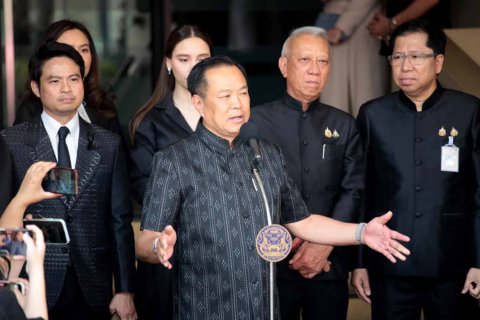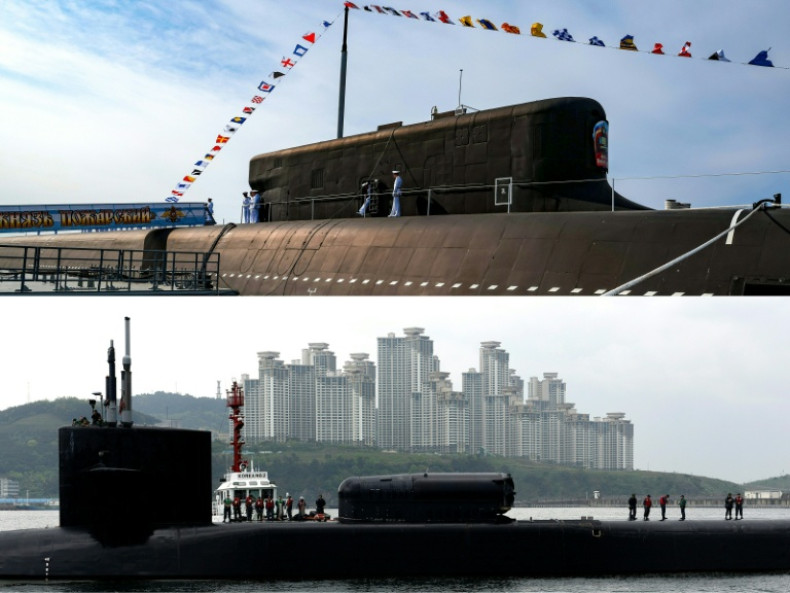Showing 1 - 10 of 10,000
No translation needed
Life, Tatat Bunnag, Published on 14/02/2026
» On a bustling stretch of Bantadthong Road recently -- thick with traffic, street-side chatter and the constant churn of the city -- Mei Semones managed to turn Bantadthong Artspace into something entirely different: quieter, softer and unmistakably intimate.
B150bn motorway projects head for bidding this year
News, Post Reporters, Published on 14/02/2026
» The Department of Highways (DoH) has announced plans to open bidding this year for several major motorway projects, with a combined investment value exceeding 150 billion baht.
Man City close in on Arsenal with win over Fulham
AFP, Published on 12/02/2026
» MANCHESTER, England - Manchester City beat Fulham 3-0 to close in on Arsenal at the top of the Premier League on Wednesday, as Liverpool inflicted Sunderland's first home defeat of the season to ease the pressure on Arne Slot.
PM Anutin expects new govt to serve full term
Post Reporters, Published on 10/02/2026
» Bhumjaithai leader Anutin Charnvirakul expects his new government to serve its full four-year term, while a key party figure says the coalition being formed should have about 300 MPs.
The art of persuasion
Life, Thana Boonlert, Published on 10/02/2026
» Following the Siamese Revolution, the country held its first general election and only indirect vote on Nov 15, 1933. Voters chose village representatives, who then elected candidates in their province to enter parliament. In the run-up to the country's first poll, Samran I-machai, an MP candidate in Ayutthaya, handed out booklets to voters.
ONE Championship: Johan Ghazali warns rivals ‘you can all get it’ after gritty win at Friday Fights 141
Nick Atkin, Published on 07/02/2026
» Johan Ghazali’s return to ONE Friday Fights was not as explosive as some expected.
Conservative vote could consolidate around Bhumjaithai
News, Published on 07/02/2026
» The Bhumjaithai Party has emerged as an unexpected wedge within the conservative camp, prising apart supporters who once reliably backed ultra-right and establishment parties such as Palang Pracharath and United Thai Nation.
The duality of man in ‘28 Years Later: The Bone Temple’
Khanaphot Saengchai, Published on 06/02/2026
» 28 Years Later: The Bone Temple (2026) is an apocalyptic battleground for many things: flesh-and-blood clashes between survivors and the infected, yes, but more compellingly, the juxtaposition of abstract concepts: creation and destruction, knowledge and ignorance, control and freedom.
US pushes for three-way nuclear deal with Russia and China
AFP, Published on 06/02/2026
» GENEVA - The United States on Friday urged three-way talks with Russia and China to set new limits on nuclear weapons, after the last treaty between top nuclear powers Washington and Moscow expired.
Bangkok Design Week 2026 puts spotlight on Thai design
Published on 06/02/2026
» The Creative Economy Agency (public organisation) or CEA, in collaboration with a wide network of public and private partners, ranging from government agencies, businesses, associations, academic institutions, designers, creatives, communities and international allies, has officially opened Bangkok Design Week 2026 (BKKDW2026) — Southeast Asia’s largest design festival. Now in its ninth edition, the event is being held under the “DESIGN S/O/S” theme, signalling that “design” serves as a solution to multidimensional challenges amid widespread crises spanning economic, environmental, social, and quality of life issues, while also elevating the city to new heights.













